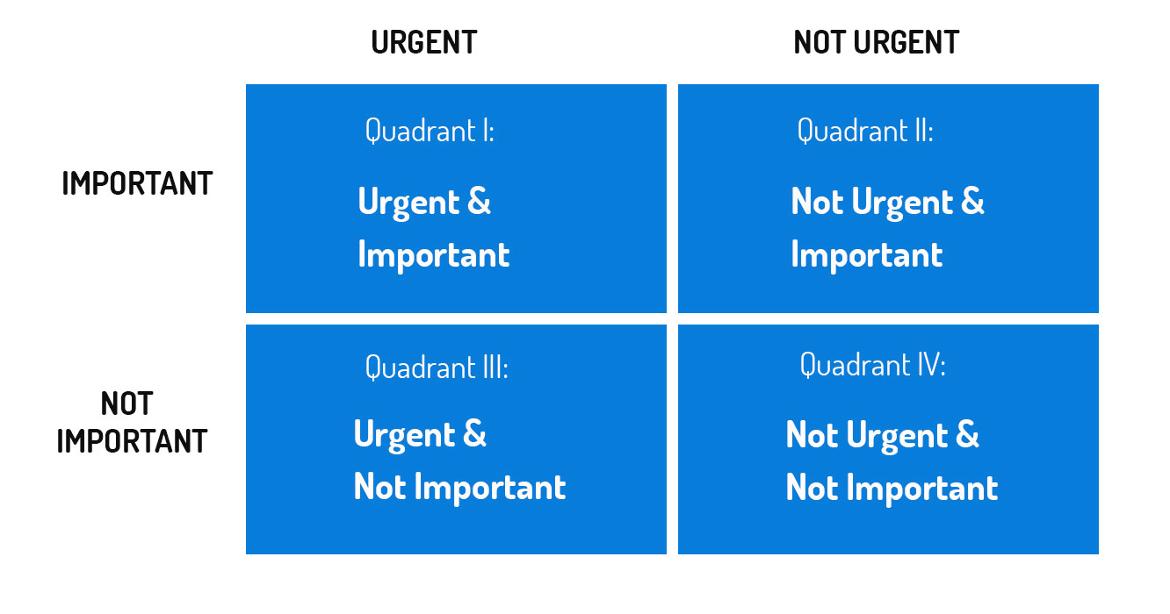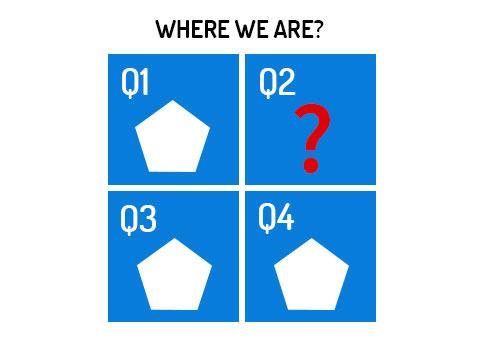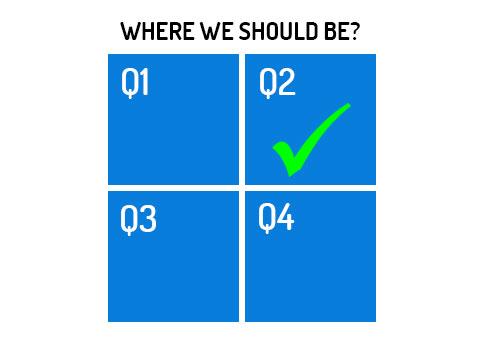Well, I have got a bad news and a good news for you.
First the Bad news...
“Time Flies”
The Good news...
“You’re the Pilot!”
Regardless of whoever we are, we have all been through one single problem, “I just don’t have enough time to do it!”. In this blog, I’m not going to waste your time by telling you how to schedule your day to day activities so that you can finish them on time. I’m sure you are more than capable to figure that out once you know what’s important to you.
I’m going to tell you a story…
Once upon a time, a businessman went on a holiday to a small village. He was taking a walk around the village near a farm where he saw a young farmer returning back to the village. Because it was quite early in the day, the businessman got curious why the farmer is returning so early. So he went to ask him.
“Hey, young man! How long have you been working on your farm today?” he asked.
“Not very long,” answered the farmer. “Just a few hours”
“Then why didn’t you stay out longer to get more work done?”
The farmer explained that his time & work on the farm was sufficient to meet his needs, and those of his family.
The businessman asked, “But what do you do with the rest of your time?”
“I sleep till late, play with my children, and take a nap with my wife. In the evening, I go out in the village to see my friends, share a laugh with them and take my parents to the temple. I have a full life.”

The businessman said, “Well I have an MBA from IIM and I’m sure I can help you. You should start spending more time on your farm every day. You’ll produce more and so you can sell more. With the money you get, you can buy modern tools & equipment for your farming. With modern farming technology, your production rate will increase and you will earn extra money. With this extra money, you can buy other farm lands and also hire other farmers to work on all your farms.
Soon you can move to a big city and manage your farming business from there and create a big empire.”
“How long would that take?” asked the farmer.
“Twenty, perhaps twenty-five years,” replied the businessman.
“And after that?”
“When your business gets really big, you can sell it entirely to some big corporation and make millions!” exclaimed the businessman with enthusiasm.
“Millions? Really? And after that?”
“After that, you’ll be able to retire, live in a small village near a farm, sleep till late, play with your grandchildren, take a nap with your wife, and spend your evenings laughing with your friends and taking your parents to the temple.”
I’m sure you already understand what I want to suggest from the above story. The farmer knows his priorities and hence he can schedule his time more efficiently in a manner that fulfils his needs. The businessman, on the other hand, may have a great strategy to earn more money but clearly, hasn’t set his priorities.
Remember, it’s less important to know how to schedule and more important to know what to schedule. Without knowing what’s important to you or setting your priorities, it is practically useless to learn a lesson of time management.
So the question is, how do you know what to prioritise? Stephen Covey, author of ‘The Seven Habits of Highly Effective People’ and ‘First things First’ popularised a concept of Time Management Grid for determining how to prioritise tasks.
Here’s that grid:

Quadrant 1 - Important deadlines with high urgency
Activities in this quadrant are both urgent and important and hence require your immediate attention. Attending an important phone call, fire in the building or dealing with a heart attack requires that you take immediate action and also these tasks are too important to be ignored.
Quadrant 2 - Long-term development & Strategizing
Activities in this quadrant are important but not urgent. This is one of the most important quadrants as how much time you allocate to these activities determine your long term achievements and success. Exercising for good health, saving money for a better future or building healthy relations with your friends and family are all important activities yet not urgent.
Quadrant 3 - Distractions with high urgency
This quadrant is reserved for activities that are urgent but not important. It is recommended to either minimize or eliminate these tasks as they do not contribute much to the output. Delegating these activities is also a good option. If you are distracted by a not so important facebook notification of a funny post while you are preparing for your final exams, you can either ignore the notification and continue with your studies or open it and spend much more minutes going through other posts.
Quadrant 4 - Almost a waste of time
The fourth quadrant is full of activities that do not produce any value. They are both unimportant and not urgent. Spending more time on activities in these quadrants can badly harm you as they are often meaningless time wasters. Mindless web surfing, watching too much TV or engaging in workplace gossip are all a total waste of time that is neither important nor urgent. Sadly a lot of times we end up wasting a lot of time by mindlessly engaging in fourth quadrant activities.
Managing your time without setting priorities is like shooting randomly and calling whatever you hit, was your target. The purpose of using the time management grid is to determine whether the time invested for various activities brings you closer to your goals or not. If you look at some of the most successful people in the world, you will find out that all of them devoted the majority of their time for quadrant 2 activities and that is exactly what you should be doing. Now the question is how quadrant 2 had been the magic wand for the victorious personalities. Well, these are those priorities that give you maximum time to create its base and if it is done properly you are going to pluck its fruit lifelong.
Steve Jobs is considered as one of the most successful people on this earth and is a role model for many techies. Let us see an example of how he spent his time. Everyone knows Steve was a perfectionist. Steve spent MONTHS preparing for his presentations, product intros and public appearances and rehearsed them exhaustively. Clearly, it wasn’t the most urgent task but in Steve’s eyes, it was extremely important. The Result? Apple Inc. and its products. Steve dedicated most of his time for Quadrant 2 activities and his success does not need any justifications.


The thought of writing on this topic has actually erupted in my mind when I was observing Emipro’s priority chart. If I talk about Emipro’s attitude towards prioritising of work, I can say to a great extent we follow the Quadrant-2. We invest 1 hour or sometimes more a day to build our team into a successful and satisfied one. Though it may not have an urgency but we feel it is going to repay us in the most important way in our near future. We believe that if we will focus on building good & talented people then we don’t need to grow the business, it will be done automatically by those people itself.
Now that you know how to analyse the time you give to your daily activities, you can definitely become the master of your minutes. Remember,
The key is not to prioritise what’s on your schedule, but to schedule your priorities.